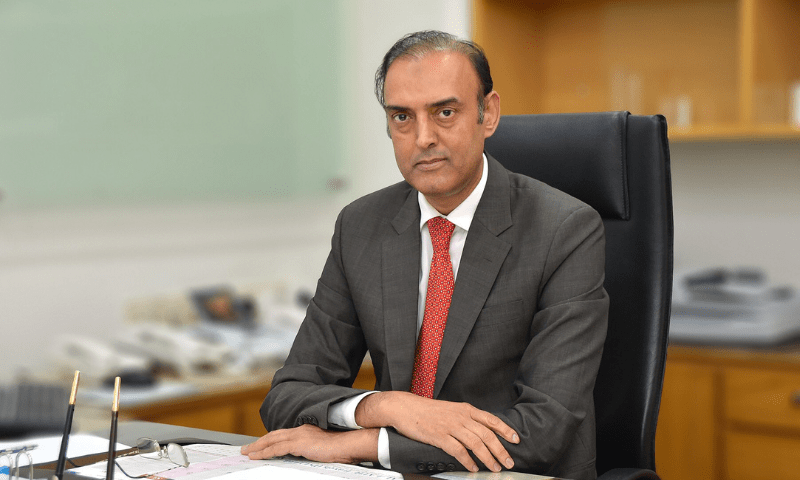Governor State Bank: Islamic Banking Needs More Work, Despite Significant Progress
Over 8,000 Islamic Banking Branches Now Operating Nationwide
Trade Deficit Controlled, Inflation Rate Hits 50-Year Low at 0.3%
Governor Jameel Ahmed Speaks at Conference in Karachi
Karachi (Web News)
Governor of the State Bank of Pakistan (SBP), Jameel Ahmed, said that foreign exchange reserves have improved due to remittances from freelancers. He noted that three years ago, the economy faced multiple challenges, with rising inflation and a ballooning external account deficit among the most pressing. However, inflation is now at a 50-year low of just 0.3%. He praised Saylani Welfare’s efforts to uplift the economy and promote IT in Pakistan.
Islamic banking branches have now surpassed 8,000, and there is a need for more work on new Islamic financial products. A legal framework for Islamic banking has already been established, and banks have been directed to ensure returns in Islamic banking are competitive with conventional banking returns.
He made these comments at a conference on Islamic Digital Economy hosted by Saylani Welfare International Trust in collaboration with the National Islamic Economic Forum and Darul Uloom Memon at a local hotel. The conference also featured technical sessions on topics like cryptocurrency, banking products, and e-commerce income.
Notable attendees included:
-
Governor Sindh Kamran Khan Tessori
-
Chairman of the Council of Islamic Ideology Allama Mufti Raghib Naeemi
-
Former Naval Chief Admiral Amjad Khan Niazi
-
Grand Mufti of Pakistan Mufti Muneeb-ur-Rehman
-
Saylani Welfare Chairman Maulana Bashir Farooqi
-
CEOs and Presidents of banks including Faisal Bank, Meezan Bank, Bank Alfalah, Al Baraka Bank, and others
Governor SBP highlighted that:
-
In 2022, the policy rate peaked at 22%, now reduced to 11%
-
The trade deficit was at a historic high of $17 billion in 2022 but has since been controlled
-
From 2022 until now, Pakistan has paid back $100 billion in external debt
-
Foreign reserves rose from $3 billion to $11 billion
-
Remittances increased from $30 billion to $38 billion, largely due to freelancers and overseas workers
He also noted that:
-
Malaysia-based institution awarded SBP as Best Central Bank for Islamic Banking over the past decade
-
One-fourth of bank deposits in Pakistan are now invested based on Islamic principles
-
A steering committee for Islamic banking transformation was formed in 2022, holding 450 meetings in the last 2.5 years
-
A Shariah governance framework has been issued
-
Banks have been directed to offer competitive returns to Islamic banking customers
-
Procedures for issuing Sukuk (Islamic bonds) should be simplified
-
Digitalization is a key focus – money transfers now take 6 seconds, down from 17
-
Digital transactions have increased from Rs 5.5 billion to Rs 7.5 billion
-
By 2028, financial services access for youth will rise to 75%
He emphasized the importance of Islamic banking awareness, stating that many people are skeptical or unaware of its principles. Saylani Welfare was praised for promoting foreign exchange earnings and contributing to the economy.
Governor Sindh Kamran Khan Tessori stated that Pakistan must break free from IMF chains, and move toward a true Islamic system. He emphasized the importance of standing strong and transitioning from conventional to Islamic banking. He also spoke about Pakistan’s military successes against India and internal conspiracies, praising Army Chief General Asim Munir for his leadership on both military and economic fronts.
Chairman of the Council of Islamic Ideology, Allama Raghib Naeemi, reiterated the council’s long-standing opposition to interest-based banking. The Federal Shariat Court has mandated the complete implementation of Islamic banking by 2027. He recommended that Hajj and Zakat funds be managed through Islamic banks. He also highlighted the growing significance of e-commerce and digital currency, urging regulatory frameworks.
Grand Mufti of Pakistan, Mufti Muneeb-ur-Rehman, stressed that there are only 2 years, 7 months, and 11 days left to fully implement Islamic banking, per the court’s order. He criticized the government’s lack of visible effort and called for more action-oriented conferences. He acknowledged SBP’s help in restoring frozen mosque and madrassa accounts.
Former Naval Chief, Amjad Khan Niazi, cited the recent military success over India as divine support for Pakistan’s efforts against the interest-based financial system.
Saylani Welfare Chairman, Maulana Bashir Farooqi, reiterated that the interest-based system must be eradicated by 2027. He emphasized that interest is a war against God and His Messenger, a battle no one can win.
SECP’s Tariq Naseem discussed progress in Islamic fintech and the need to include 7 million unbanked microfinance customers in the financial system.
Faisal Bank President, Yousuf Hussain, noted ongoing discussions to advance Islamic banking, stressing the need for collective efforts.
ABAD Chairman, Hassan Bakshi, said that 90-95% of people in the construction industry want Islamic banking. He requested SBP guidance and called for more programs to promote Islamic banking.
K-Electric CEO, Moonis Alvi, mentioned that K-Electric has launched Sukuk worth Rs 30 billion, and is working on Islamic utility bonds with full investor access. They are also helping Saylani pay electricity bills for eligible Zakat recipients.
MOUs were signed between Saylani and financial institutions for future cooperation.

